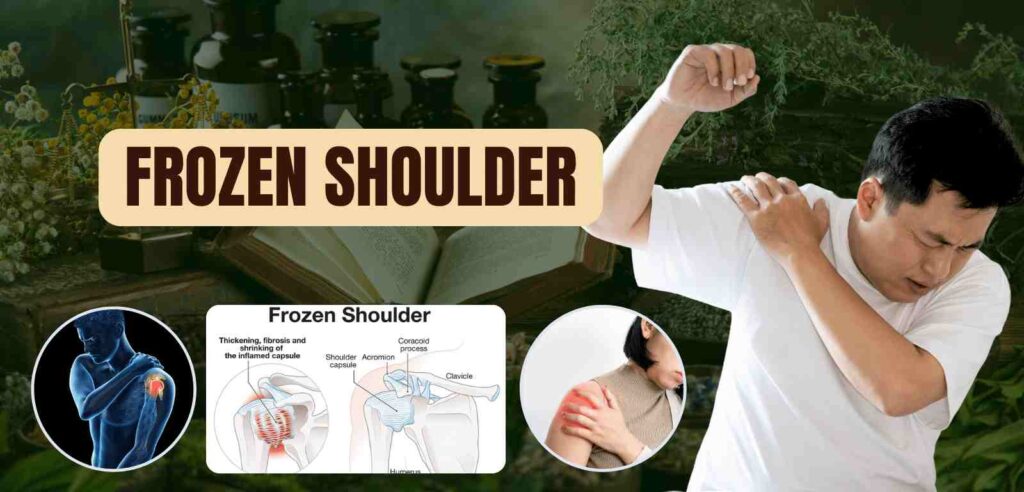
Frozen Shoulder
Frozen shoulder, also known as adhesive capsulitis, is a condition characterized by stiffness and pain in your shoulder joint. Signs and symptoms typically begin gradually, worsen over time and then resolve, usually within one to three years.
The exact cause of a frozen shoulder is not fully understood, but it can develop when the flexible tissue that surrounds the shoulder joint, known as the capsule, becomes thickened and inflamed. This can cause the shoulder to become stiff and painful and make it difficult to move.
Risk factors for frozen shoulder include being over the age of 40, being female, having a medical condition such as diabetes or a thyroid disorder, and immobility or reduced mobility of the shoulder, which can occur following a shoulder injury, a stroke, or surgery.
Treatment for frozen shoulder involves range-of-motion exercises and, sometimes, corticosteroids and numbing medications injected into the joint capsule. In a small percentage of cases, arthroscopic surgery may be indicated to loosen the joint capsule so it can move more freely.
It’s important to note that even with treatment, it can take up to 3 years for a full recovery. However, the pain and stiffness will gradually improve over time.
Submit An Inquiry
Contact Us
Timing
- 1:00 PM To 6:00 PM
Visit Clinic
1. Freezing stage: During this stage, any movement of your shoulder causes pain, and your shoulder’s range of motion starts to become limited.
2. Frozen stage: Pain may begin to diminish during this stage. However, your shoulder becomes stiffer, and using it becomes more difficult.
3. Thawing stage: The range of motion in your shoulder begins to improve.
Common symptoms include:
– Gradual increase in pain: In the early stages, your shoulder may ache and feel stiff. As it gets worse, it may hurt more at night and when you try to move your shoulder.
– Limited movement: You may not be able to move your shoulder as you normally would. It may be too painful or stiff to lift your arm above your head or reach behind your back.
– Difficulty with daily activities: Routine activities such as combing your hair, putting on a belt, or reaching into a back pocket can become challenging and painful.
If you’re experiencing these symptoms, it’s important to seek medical attention. Early treatment can help prevent long-term stiffness and pain in the shoulder.
1. Age and sex: People 40 and older, particularly women, are more likely to have frozen shoulders.
2. Immobility or reduced mobility: Periods of inactivity or reduced mobility, such as from a rotator cuff injury, broken arm, stroke, or recovery after surgery, can lead to the development of a frozen shoulder.
3. Systemic diseases: Certain diseases can increase your risk of a frozen shoulder, including diabetes, overactive thyroid (hyperthyroidism), underactive thyroid (hypothyroidism), cardiovascular disease, tuberculosis, and Parkinson’s disease.
It’s important to note that in many cases, the cause is unknown. This is referred to as a “primary” or “idiopathic” frozen shoulder. In other cases, the condition is triggered by another disease or injury, which is referred to as a “secondary” frozen shoulder.
- For Clinic visits: E-16/30, Sector – 8, Rohini, Delhi – 85
- For Teleconsultation: 927-874-1850
- Email: info@vaidmishraji.in
- Timing: Mon-Sat (1:00 PM – 6:00 PM)
